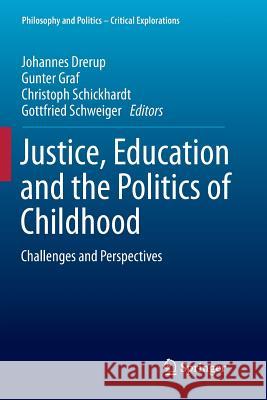Justice, Education and the Politics of Childhood: Challenges and Perspectives » książka
topmenu
Justice, Education and the Politics of Childhood: Challenges and Perspectives
ISBN-13: 9783319801292 / Angielski / Miękka / 2018 / 253 str.
Justice, Education and the Politics of Childhood: Challenges and Perspectives
ISBN-13: 9783319801292 / Angielski / Miękka / 2018 / 253 str.
cena 192,30 zł
(netto: 183,14 VAT: 5%)
Najniższa cena z 30 dni: 191,40 zł
(netto: 183,14 VAT: 5%)
Najniższa cena z 30 dni: 191,40 zł
Termin realizacji zamówienia:
ok. 20 dni roboczych.
ok. 20 dni roboczych.
Darmowa dostawa!
Kategorie BISAC:
Wydawca:
Springer
Seria wydawnicza:
Język:
Angielski
ISBN-13:
9783319801292
Rok wydania:
2018
Wydanie:
Softcover Repri
Ilość stron:
253
Waga:
0.39 kg
Wymiary:
23.39 x 15.6 x 1.47
Oprawa:
Miękka
Wolumenów:
01
Dodatkowe informacje:
Wydanie ilustrowane











